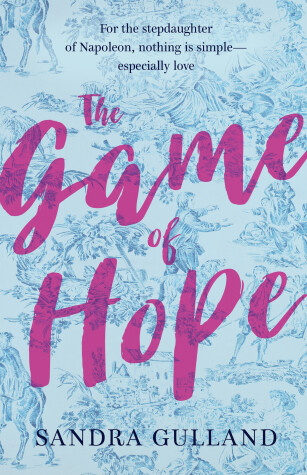“You grew up in a violent time,” she said, her voice soft. “You witnessed things no child should ever have to see. But memories are like words on a wax tablet: they can be erased. You are smart, and creative, and talented. You can become whatever you wish, but first, you must learn to direct your thoughts—even your dreams.” She tucked a stray strand of my hair back up under my nightcap. “Remember: you are safe now.”The story follows Hortense, the 15 year old stepdaughter of Napoleon Bonaparte, during her final year at The Institute -- a finishing school that houses a number of orphaned and/or traumatized children of nobility following the Terror. The characters are rich and come alive on the page, and I found myself caring for each of them deeply.
I appreciated the discussion of difficult topics surrounding that period, including the slave trade (and the differences between the American and French views pertaining to "freedom"), arranged marriage versus romantic love, and a woman's "place." Despite the time-frame, I found the writing and central characters to have a feminist spirit while still adhering to the expectations of the time period. I really appreciated the historical accuracy to the period while still giving the characters dreams and desires beyond that.
“Kitchens?”This novel is a coming of age tale, but it is about more than hope, growing up, and young love. It is about living after a political nightmare, the trauma, of moving on and covers the brief period of time between the Revolution and the Napoleonic Periods through a character-driven perspective of the events. True to the time period, there are discussions of arranged marriage, etiquette, and the art of courting; however, romance is not the central component of this story. If you are looking for a historical romance novel of this time period, I think you will be disappointed.
“You need to see them because we’re taught how to cook.”
Eliza stopped on the landing, holding Henry by the neck (strangling him). “Slaves do not perform that function?”
“We have a cook, but Maîtresse Campan believes it’s important that we learn to look after ourselves. We make our own beds and tidy our rooms, sew our own smocks and sashes, cook—”
“In America, slaves perform all that,” Eliza informed me with a somewhat snobbish tone. As if we in France weren’t as advanced.
“Slavery is against the law here,” I said.
Her eyes went wide. “No slaves ?”
“Not since the Revolution. We believe in equality.”
“In America, likewise!”
“Equality for all ,” I said, swinging open the heavy door.
The book is very well researched and I really appreciated the historical commentary at the end of the book describing what was from the historical record. I was a bit put off by the abrupt ending and although I was happy to see those gaps filled in from a historical standpoint, I wish the narrative just didn't end. I also expected that the game of hope (tarot cards) would hold a larger part of the narrative due to the title of the novel, but perhaps it is my personal love for the supernatural harboring this desire!
Thank you First to Read for providing me with a copy of this book in exchange for my honest review.
Blog | Twitter
